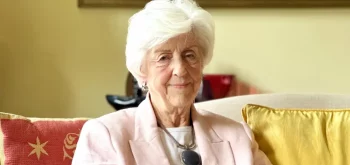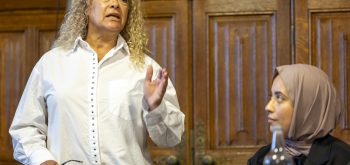A new report drawing on interviews with prisoners convicted of sexual offences but maintaining their innocence highlights the insurmountable barriers to overturning wrongful convictions. The academics Rosalie Burnett and Naomi-Ellen Speechley report that almost one in five (19%) cases that the miscarriage of justice watchdog referred back to the Court of Appeal were sexual offences between 1997 and 2019. Of the 127 cases that the Criminal Cases Review Commission (CCRC) has sent back to the Court, only 84 had been quashed or partly quashed. Faced with the odds, a number of the prisoners interviewed had given up trying to overturn their convictions.
The study (Robbed of Everything) draws on interviews with people originally conducted for a 2016 study (The Impact of Being Wrongly Accused of Abuse in Occupations of Trust). That earlier report did not include interviews with 13 respondents who had been convicted but persistently maintained their innocence as well as family members. The authors begin with the assertion that wrongful convictions happen ‘but are not widely recognised’. ‘There is ample evidence of innocent people being wrongfully accused of sexual offences, and erroneously convicted in some cases,’ they say. They cites high profile examples such as Stefan Kiszko, those accused by the convicted fantasist Carl Beech as well as less high profile examples that have been reported by the Justice Gap including David Bryant and Geoff Long (and featured in Guilty Until Proven Innocent, Biteback, 2018).
The report cites figures from the US where there have been 2,705 exonerations in the US since 1989. Of 293 exonerations for child sexual abuse, perjury or false allegations were factors in 85% of cases; and of 339 exonerations for sexual assault, perjury or false allegations were factor in 43% of cases while mistaken identity contributed to 67% of cases. Many of the US exonerations relied on DNA evidence.
Burnett and Speechley explain the almost impossible odds faced by someone claiming to have been wrongly convicted. By contrast with DNA evidence (‘which can provide incontestable proof’), there was ‘minimal chance’ of satisfying the CCRC’s statutory ‘real possibility’ test for referring cases back to the Court of Appeal (i.e., there has to be the ‘real possibility’ that the court will overturn it).
The report states: ‘It comes down to what has been called a “credibility contest”. As commented by one CCRC case manager, “All sex cases aren’t the same. But… when you are looking at a sex case, [it] does come down to credibility – effectively one person against another.” The case manager went on to mention, “we’ve referred cases on in relation to complainant credibility that the Court of Appeal has not been interested in at all.”’
The decision to omit interviews the interviews with prisoners claiming to be innocent was made because of concerns over the ethics of including their views in a study of false allegations. In the introduction, Ros Burnett and Naomi-Ellen Speechley point out that it was always their intention to produce a separate article to cover their perspective arguing that it was both ‘rational and professionally ethical’ to do so.
They wrote: ‘Unless we are sure that no-one lies or is mistaken when accusing another of such a crime; unless we are going to deny the existence of miscarriages of justice and the error of some jury decisions; unless no-one gets wrongly imprisoned and then turned down on appeal; then the impact of that ‘worst case scenario’ must logically be included in a more comprehensive study of the consequences of being wrongly accused.’
Whilst recognising some interviewees ‘may be guilty or partly guilty’, the authors add ‘with knowledge of the very real errors and miscarriages of justice that can (and have) occurred, we are committed to giving a voice to those who were convicted but maintain innocence, and their families, as a severely under-researched, largely ignored or discounted population’. ‘Consequently, we are prepared to give them the benefit of the doubt for the purposes of undertaking this research, unless evidence to the contrary emerges,’ they add.
Most of the interviewers maintaining their innocence were ‘still hopeful’ of overturning their convictions; but others had given up. ‘To an outsider it may be hard to understand why someone wrongly convicted (and especially of such reviled offences) would not spend every penny they had fighting to clear their name,’ the authors say; however they highlighted ‘common barriers’ that it was ‘often just not feasible’.
First appeals failed due to an inability to identify the evidence that could be regarded as ‘fresh’ as required under statute. Several were advised against an initial appeal due to the unavailability of evidence and others failed to do so because of ‘the trauma and adjustment of going to prison’. The cost of legal advice proved another barrier for participants as ‘many… had just spent all available funds on legal representation at first trial or could simply not afford to risk further losses having been convicted and consequently unable to find regular income or employment’.
Some had sought help from a solicitor or university innocence projects ‘but after years of waiting, little progress had been made, and they received a negative communication about unlikely prospects, and felt they had reached a dead-end’.
The report continues: ‘Most had not submitted an application to the CCRC yet because they had been firmly told it is near-impossible for them to succeed (it is well known that very few applications to CCRC result in the conviction being quashed) and they want to make the best of what life is still left for them.’
‘I’ve spent my life savings to get an appeal,’ one interviewee Joshua told the researchers. ‘I’ve sold my house to get money to go further and I might get an appeal sometime this year, if luck’s on my side… but you’ve great difficulty in getting a barrister or solicitor to take it to court for you afterwards.’ Another (Charles) described needing to cash in his pension at 52 years of to pay £30,000 in legal costs
The study also documented the emotional impact of the ‘devastating, life-changing realization of now being labeled an offender’. ‘My life stopped when I was 47 because that’s how old I was when these allegations came out and I don’t feel I’ve lived again since – in fact, I haven’t. I haven’t lived a life because whatever I was, was that person… I’ve never felt that same person again, at all. People say to me, ‘I wish we could have the real Chris back again.’
Family members spoke about watching their loved ones struggle. ‘It definitely shortened Arthur’s life,’ ’Lynn’ and ‘Marie’ said. ‘When he was first imprisoned he wasn’t given any medication for about 10 days. This was treatment for high blood pressure and essential to take daily. At this point he was in a poor state health-wise and we believe it had longer-term effects. After 7 years in prison he tried hard to put the experience behind him and this took a while. His sleep patterns were affected, he had bad dreams, would fall out of bed, shout out and generally show unrest. After 3 years at home he died suddenly.’







